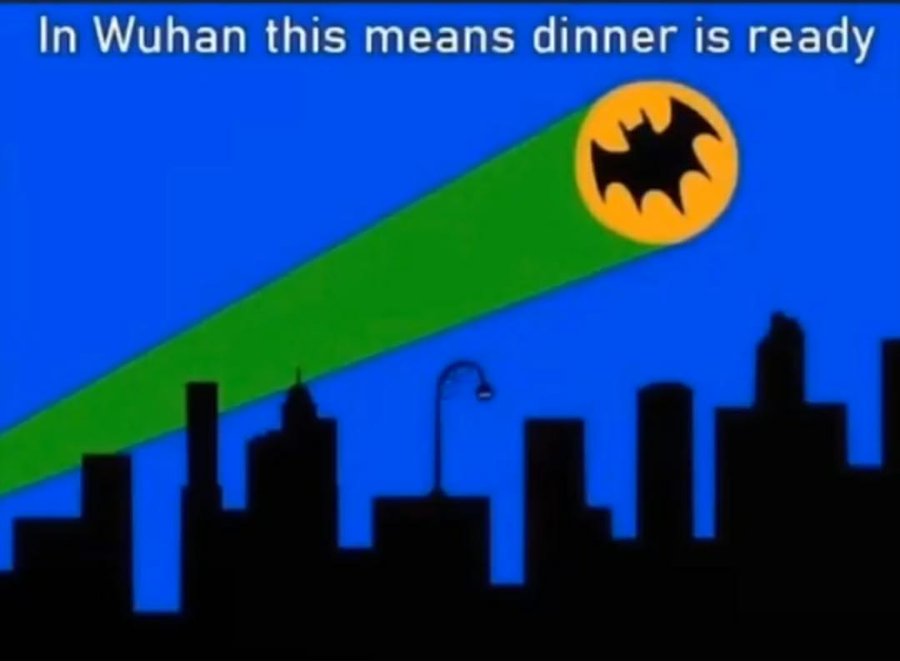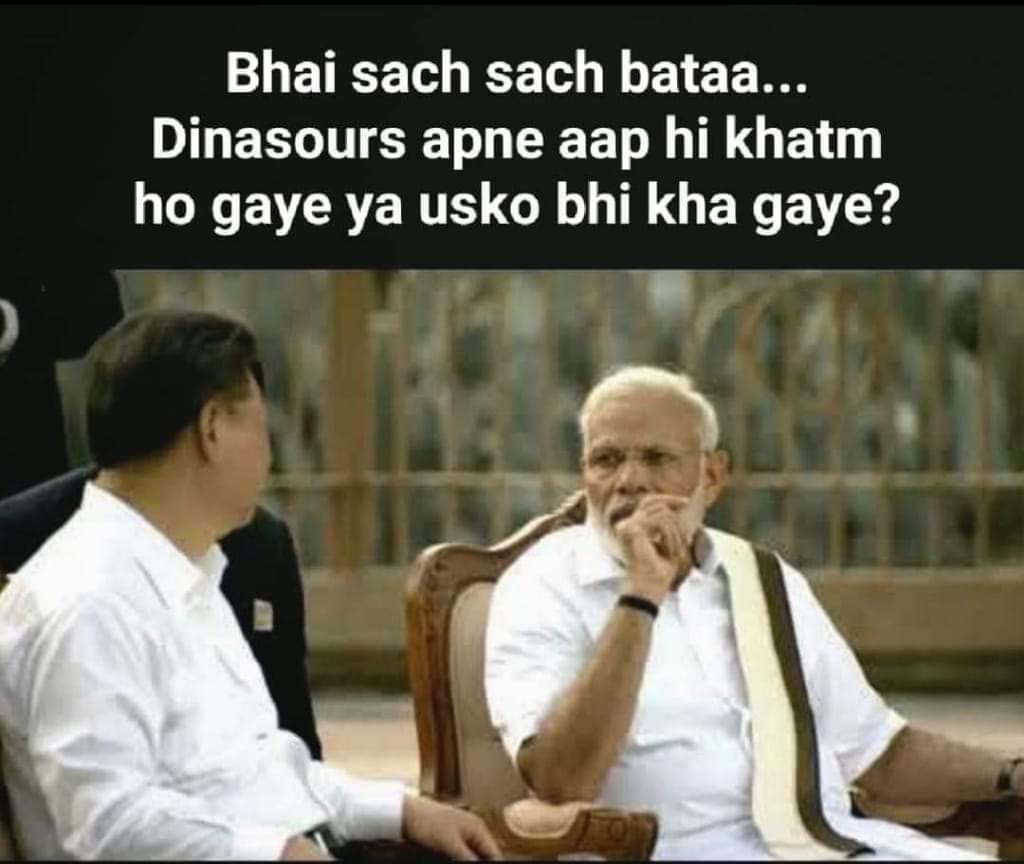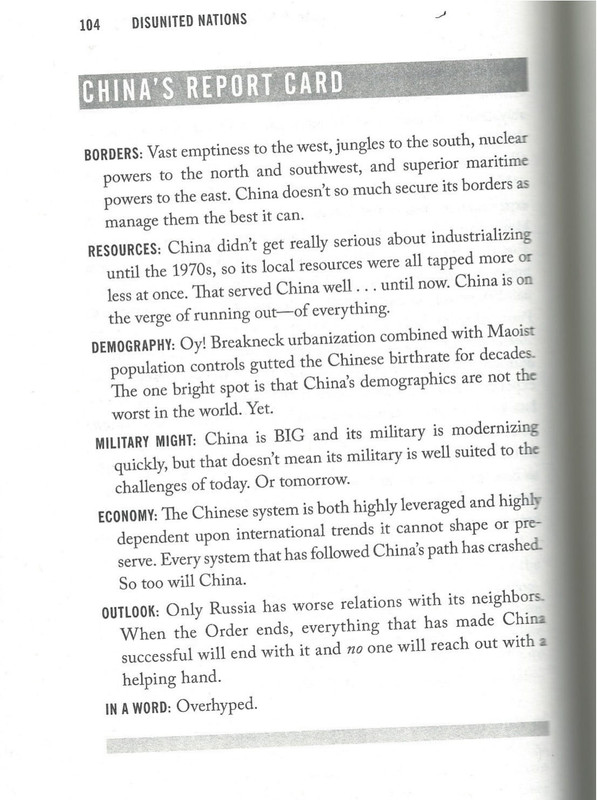Re: Neutering & Defanging Chinese Threat (15-11-2017)
Posted: 03 Apr 2020 17:42

Consortium of Indian Defence Websites
https://forums.bharat-rakshak.com/


Barath wrote:https://www.belfercenter.org/publicatio ... sual-guide
Harvard Kennedy School has issued this paper on the strategic posture of India and China.
Rick Joe, regular contributor to The Diplomat and editor of PLARealTalk.com and a long time follower of China via open source analysis has suggested that
> I think this piece is too focused on "comparing forces" in the region and doesn't first ask the question of what each side's actual military objectives may realistically be. Trying to articulate a military balance without considering realistic objectives makes the entire comparison moot.
> Some of their assumptions seem a bit dubious to me, ranging from comparative quality of aircraft to comparative quality of pilot training, to assumptions about the availability of air bases in a time leading up to war, and also declining to consider the totality of each side's conventional strike capability.
> ... I would argue on the contrary that it's very mainstream opinion that Indian military conventional forces during normal peacetime technically outmatches and outmasses what the PLA fields in the region across the border.
even so, the level of detail means it is a publication worth reading, even with all the caveats.
How true is the highlighted part? Is the author gas lighting? Because, I haven't seen this concession anywhere else in the news. Not one of NaMo's critics/detractors will let go of this opportunity to go to town to excoriate MAD. What gives?In fact, India has every reason to reach an understanding with China, since its immediate disputes with it are mostly the product of Chinese self-aggrandisement and economic primacy, and will recede when its relative position declines. The apparently intransigent territorial issues themselves are only deadlocked disputes over thirteen strategic points along the Sino-Indian border since India has effectively conceded China’s position in the Aksai Chin. These issues can be resolved if there is political will and, once the Tibetan government in exile’s presence in India is repudiated, it will lead to a wider Sino-Indian concord.
Kazakhstan’s foreign ministry summoned the Chinese ambassador on Tuesday to protest over an article saying the country was keen to become part of China, the ministry said.
It also states that Kazakhstan had historically been part of China’s territory and Kazakhs “do not have too many complaints” about being repeatedly invaded by China.
Global Times @globaltimesnews
#Opinion: The days when China can be put in a submissive position are long gone. As Western diplomats fall into disgrace, they are getting a taste of China's "Wolf Warrior" diplomacy. https://bit.ly/3ctrzLX
PM Modi's choice of Mahabalipuram to host Xi was not an accident at all.During our state visit, Xi and his advisers relied heavily on history to convey their intended message.
China has definitely had some success in the first, but we havent seen much of the second, except encouraging conspicuous consumption of cheap Chinese products, polluting large swaths of land and oceans, and currently letting loose the Corona virus. In my view, greater contribution to humankind coming from the mouth of an authoritarian regime is just hogwash.Xi to showcase his determination to “move closer to the center of the world stage and to make a greater contribution to humankind.”
“century of humiliation”
China’s leaders believe they have a narrow window of opportunity to strengthen their rule and revise the international order in their favor.
India must actively take steps to mitigate these three prongs with its own Trishul strategy.co-option, coercion, and concealment
One of the Pallava princeses, who took the moniker Bodhidharma, went to Southern China in the 6th century and spread Buddhism. Mahabalipuram was the capital of the Pallava Kingdom. The Sui dynasty was ruling at that time in China. Now, he taught the Chinese the art of meditation as well as martial arts and established the Shaolin school. The dhyaan that was taught came to be known as cha'an in Chinese and later spread to Japan as zen. It is said that he took such a severe meditation, more a penance, facing a wall once that his figure was imprinted on that.amar_p wrote:PM Modi's choice of Mahabalipuram to host Xi was not an accident at all.
Sounds interesting! Can you please point me to it?V_Raman wrote:The way things are moving, Deans 2022 scenario is looking more and more real.
g.sarkar wrote:https://www.rediff.com/business/report/ ... 200420.htm
China reacts: India's new FDI rules violate WTO spirit
Source: AN IApril 20, 2020 14:30 IST
China said on Monday the additional barriers set by India for investors from specific countries violate the World Trade Organisation's principle of non-discrimination, and go against the general trend of liberalisation and facilitation of trade and investment.
"More importantly, they do not conform to the consensus of G20 leaders and trade ministers to realise a free, fair, non-discriminatory, transparent, predictable and stable trade and investment environment, and to keep our markets open," said a statement issued by the Chinese embassy in New Delhi.
Companies make choices based on market principles. "We hope India will revise the relevant discriminatory practices, treat investments from different countries equally, and foster an open, fair and equitable business environment," said the statement by the spokesperson of the Chinese embassy in India, Counsellor Ji Rong.
Regulatory barriers
A firm needs to register its product with the specified Chinese authority. This means submitting a large number of documents, including details about the firm and its products.
The next step is meeting the inspection, product testing, and quality certification requirements. Chinese experts would visit and inspect Indian factories. The costs are to be borne by the Indian side. Only Chinese labs do product testing. And there can be no appeal on their decisions. Let us take the case of medicines, industrial and food products.
India imports 90 per cent of bulk drugs or APIs from China and allows it easy access through a simple registration system. After registration, there’s no rule for checking off each consignment at the time of imports.
Not so in China, though. Registration takes one to three years. Testing takes place again at the time of imports. And, China cancels registration even if one batch has issues.
The provinces do not recognise USFDA certificates and need new clinical trials even on generic drugs. This increases the cost.
Coming now to the export industrial products such as electric wires cables, IT products, motorcycle parts/accessories and electrical tools to China. One has to first get an NOC from the China compulsory product certification system or CCC. The NOC may come after detailed laboratory testing, factory inspection, and labelling.
More stringent processes await exporters of food, meat, fish, and dairy products. They have to get NOC from the General Administration of Customs China (GACC) and relevant administrative ministries.
They will also have to follow the China food safety standards and applicable sanitary and quality regulations. Products like oilmeal need further clearance from China’s Agriculture Ministry.
After obtaining all the NOCs, it is still not done. For products like rice and sugar, a firm needs import quota to avoid exorbitant tariffs. And state agencies get most of the quota.
The complicated and non-transparent system ensures that it takes years to get the green signal. Or it may never come.
Internal market
Only a limited part of China’s imports enter into the domestic market. Most imports act as inputs for making export products. Most electronics and machinery trade between China and Japan-Korea-ASEAN falls in this category.
Much of this trade happens at zero duty outside the FTAs (free trade agreements). Internal market barriers also apply to firms producing in China.
They have to clear extra barriers to sell in the Chinese domestic market. Preference is always to domestic firms.
viewtopic.php?f=3&t=7703kumarn wrote:Sounds interesting! Can you please point me to it?V_Raman wrote:The way things are moving, Deans 2022 scenario is looking more and more real.
My my what has the world come to wh#r#s preaching the world about chastity & virginityg.sarkar wrote:https://www.rediff.com/business/report/ ... 200420.htm
China reacts: India's new FDI rules violate WTO spirit
In 2019, before the coronavirus stormed out of Wuhan to shake the world, 57% of Americans already had an unfavorable opinion of Beijing. The most recent Gallup poll, in February 2020, put that at figure at 67%.
We have extensive experience with such Chinese behaviour. The Chinese stop only when dealt with an iron hand. Otherwise, this false bravado coming from the 'Son of Heaven' title and the 'Middle Kingdom' fixation with tributaries & vassalage from everyone else gets into their head.g.sarkar wrote:https://www.economist.com/europe/2020/0 ... e-bullying
Shotgun diplomacy
How Sweden copes with Chinese bullying

Palki Sharma @palkisu
3 continents, 1 demand: #MakeChinaPay
Australia & Europe want an international probe into the #WuhanVirus outbreak. Trump wants his own. Now even the @WHO “hopes China would invite it to join an investigation” into the origins of the virus.
WION@WIONews · May 2
#Gravitas | Leaders in three continents are cranking up the pressure on China. European Commission Chief has backed demand for a #COVID19 probe. Australia wants to back Taiwan's entry into WHO.
US President is considering stripping China of sovereign immunity. @palkisu has more
https://twitter.com/WIONews/status/1256295074314379264